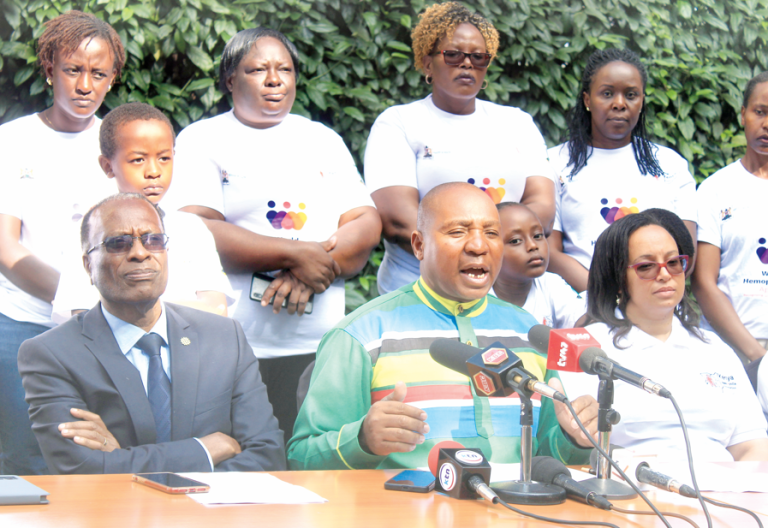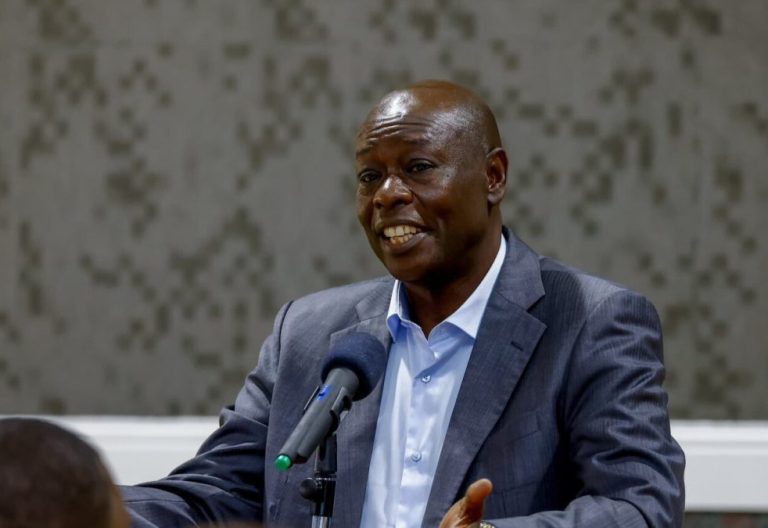Patients with bleeding disorders call for funding

Kenya Haemophilia Association (KHA) has called on the government to allocate more funds for the national supply of clotting factor concentrates. While joining the global community in marking World Haemophilia Day on April 17, the association said that adequate funding is the only way to save more than 1,000 lives at risk due to the blood disorder.
“KHA looks forward to the day when the Ministry of Health mandates universal screening in all public and private healthcare facilities countrywide — to identify bleeding disorders before any surgical procedure including circumcision is performed,” said Prof Karanja Njoroge, Chairperson of the Board of Trustees at KHA during a press conference in Nairobi. It emerged that 25 people have died in the last four years, lives Prof Njoroge pointed out could have been saved.
“This must end,” he stated and called on the ministry to prioritise early screening and diagnosis of women with bleeding disorders, many of whom are misdiagnosed or ignored.
Sylvia Kathurima, a member of the KHA Board of Directors expressed regrets that too many women with bleeding disorders suffer undiagnosed, especially during childbirth.
“To address this problem, KHA is calling for haemophilia care to be fully integrated into maternal and reproductive health services,” she said, stating that no mother should die giving life.
The association said that because without adequate resources people with blood disorders will continue suffering and called for the implementation of the Public Petition No. 60 submitted to Parliament In 2019 by KHA, through then nominated MP David Ole Sankok.
“We are calling on the government to procure clotting factor concentrates, inclusion of haemophilia under the national insurance, and recognition of persons with haemophilia as persons with disabilities,” KHA said in that petition, which also advocated for the allocation of Sh500 million through the supplementary budget.
No disbursements
Parliament adopted the petition, and a Ministry of Health-led) taskforce, with KHA support, proposed the amount. Sankok revealed on Thursday that the funds were approved — but never disbursed.
“The pandemic came and went. Haemophilia patients are still waiting while some unfortunately succumbed to the disease,” Sankok, now a member of the East African Legislative Assembly, said.
The association has now renewed the call to action suggesting seven urgent steps be taken to reduce the burden of blood disorders in the country.
“Allocate sustainable funding for a consistent national supply of clotting factor concentrates, by channelling the funds through Kenyatta National Hospital for streamlined procurement and distribution,” KHA said.
According to KHA, the government should also equip referral hospitals with modern diagnostic tools, invest in local research and innovation to secure Kenya’s future in haemophilia care, and adopt, roll out and scale up haemophilia treatment guidelines.
This year’s World Haemophilia Day theme was: “Access for All. Women and Girls Bleed Too.”#
In Murang’a Stanley Mwangi was diagnosed with haemophilia at a very tender age but access to medical attention remained a big challenge for him.
He spent most of his childhood admitted in hospitals after a minor fall or cuts due to excessive bleeding which needed to be controlled.
“Sometime back to the hospital we used to get blood transfusion because there were no factors to aid in blood clotting,” said Mwangi.









